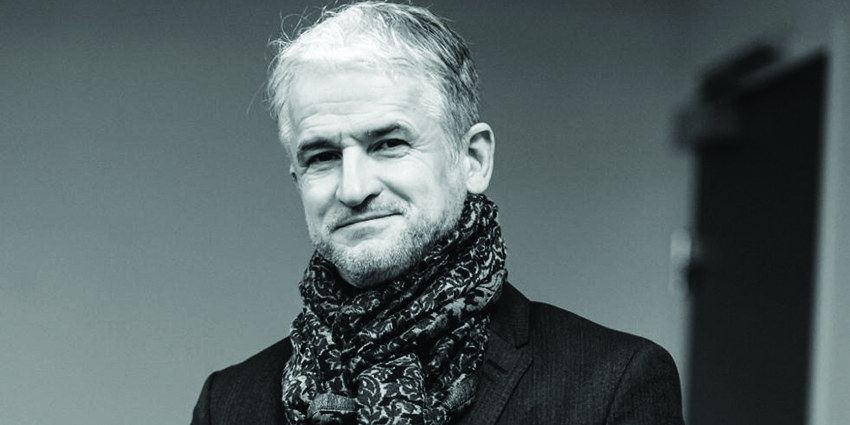Interview with Eric Campos, CEO, Grameen Crédit Agricole Foundation
Probably because it is a very effective lever in the fight against poverty, microfinance is a central topic for rethinking the global economy. The health crisis and its effects on the poorest populations have only reinforced this urgent need for financial inclusion. Spotlight on an interview of Paperjam Luxembourg to Eric Campos, CEO of the Grameen Crédit Agricole Foundation.
Why is microfinance a subject of interest for you?
Today 1.7 billion people, the majority of whom live in rural areas, lack access to funding and the financial sector has a key role to play in addressing this global challenge. The Foundation is one of the Crédit Agricole Group’s levers to promote financial inclusion and the development of rural economies in emerging countries. This was the ambition Crédit Agricole established when it launched the Foundation 12 years ago, along with Professor Yunus, 2006 Nobel Peace Prize laureate: to contribute to the fight against poverty by promoting microfinance and social impact entrepreneurship around the world. The Foundation is a committed player in poor countries in line with the “Raison d’être” of CA Group: “Working every day in the interest of our customers and society”.
Our mission takes on even more significance in the current context. The Covid-19 pandemic particularly hits the most vulnerable populations and microfinance is a lever to strengthen their resilience during the crisis. In this context, we had to adapt our methods of intervention and to innovate. We have set up very regular monitoring with funded institutions to understand the effects of the crisis and their needs. We have also implemented many rollovers to allow these institutions to support their own clients and to accept, themselves, rollovers of microloans. Since March, we have also coordinated an international movement of donors, investors and inclusive finance actors to commit to preventing a liquidity crisis in the sector and providing coordinated responses to cope with the economic effects of the crisis.
Can you present the Grameen Crédit Agricole Foundation and its objectives?
The Foundation is a cross-business player: investor, lender, technical assistance coordinator and fund advisor, the Foundation finances and supports microfinance institutions, enterprises and projects that promote inclusive finance and the development of rural economies around the world.
The Foundation now accompanies and supports 86 partners (74 microfinance institutions and 12 social impact enterprises) in 40 countries with nearly 100 million outstanding loans. The Foundation seeks to promote women empowerment through the economy, 88% of final beneficiaries are women, and primarily targets rural populations: among the 7.3 million clients supported by the institutions the Foundation finances, 84% live in rural areas.
How does the Foundation work with the CA Group today?
The Foundation has set up several partnerships with the Regional Banks and Crédit Agricole entities. We have established cooperation plans with the International Retail Banking in Romania, Egypt, India and Morocco, which allows Group entities to finance microfinance institutions in local currency with the guarantee of the Foundation. We have launched with CA Indosuez Wealth (Asset Management) and CACEIS Bank Luxembourg Branch, the Fund for Inclusive Finance in Rural Areas (FIR), the first microfinance fund of Crédit Agricole to which 21 Regional banks, Crédit Agricole Assurances and Amundi have already subscribed. Finally, since June 2018, along with Crédit Agricole SA we set up “Solidarity Bankers”, a skills-based volunteering programme through which we propose technical assistance missions to CA Group employees on behalf of organisations financed by the Foundation.
Furthermore, in response to the Covid-19 crisis, the Foundation has worked with Crédit Agricole SA, Crédit Agricole CIB, Crédit Agricole Wealth (Asset Management) and other key players in inclusive finance on a Common pledge to protect microfinance institutions and their clients. The commitment, which gathers 30 signatories, is based on a set of principles intended to protect the microfinance sector and their clients from the economic effects of the health crisis. Thanks to this coordinated action, liquidity defaults have been avoided and we have supported partner organisations through technical assistance missions.
What subjects will be addressed in the years to come within the Foundation?
Climate change, demographic growth, food security, digital transformation … there are many challenges at the centre of our concerns. It is urgent to act, to innovate with new means of action, to strengthen cooperation. This belief is at the heart of the Foundation’s actions and of its 2019-2022 Strategic plan. Its objectives are: consolidate the sustainability of organisations that provide essential services with appropriate funding and technical assistance; strengthen the resilience of rural economies by supporting social impact enterprise; and promote inclusive finance within the banking sector, in particular through the partnerships set up with the Crédit Agricole Group.
In response to the Covid-19 crisis, the Foundation will continue to support, alongside its institutional, private and solidarity partners, microfinance institutions and social enterprises with targeted funding and technical assistance to strengthen their resilience in this unprecedented crisis. We will continue to monitor the effects of the health crisis and take action to strengthen the resilience of microfinance and impact entrepreneurship, in concert with other stakeholders.